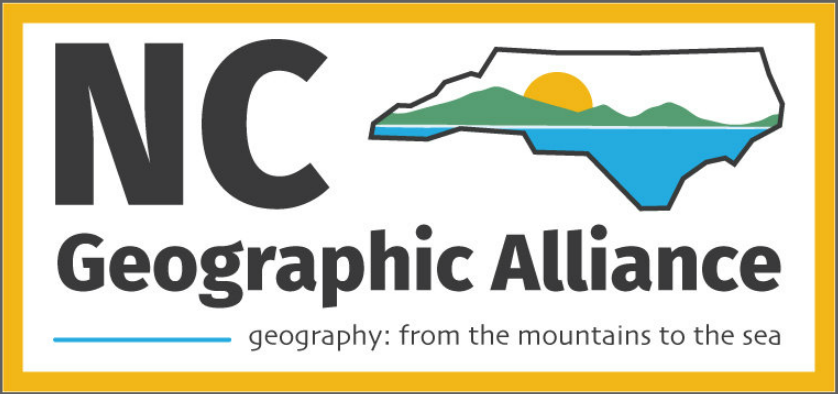The NCGA
The North Carolina Geographic Alliance (NCGA) was founded in 1987 as part of a national network established by the National Geographic Society (NGS) with the goal of promoting better teaching of geography. After establishing a base of Teacher Consultants, the NCGA built a statewide network to pass along information to teachers for use in their classrooms. In the NC Standard Course of Study (SCOS), geography was one of the major strands in the social studies curriculum. In 1988, NCGA held its first NCGA Summer Geography Institute (ASGI) at ECU, with 40 participants, followed by an ASGI at ASU a year later with an equal number of participants. The summer institutes were held every year from 1988 through the late 1990s. From 1987 until 2004, Appalachian State University (ASU) and East Carolina University (ECU) were centers for the NCGA, and university connections were critical. Since 2004, the North Carolina Geographic Alliance has been based at Appalachian State University.
Currently, the NCGA provides professional development for teachers through the annual state social studies conference and other outreach efforts, including distribution of Geographic Awareness Week materials, participation in World View symposia, and the Giant Traveling Map Program.
Our Purpose
Vision
The North Carolina Geographic Alliance (NCGA) envisions geography having a valued place in North Carolina. Geography is essential to prepare North Carolina students as productive citizens; the NCGA is committed to the goal of achieving geographic literacy and proficiency for students in North Carolina’s schools. Our vision is to develop among educators, governmental decision makers, and the general population an understanding of the full scope and value of geography.
Mission
- To provide educators with effective and relevant professional development, support, and materials focusing on geographic concepts, content, and pedagogy.
- To educate legislators and education decision-makers at the local, state and national levels about the relevance of geography in the 21st century and to motivate and inspire action within the context of curriculum design, professional development, connections between elementary, secondary, and university systems, and professional associations.
- To cultivate awareness among parents of students and the public at large of the importance of geo-literacy and to actively engage citizens in the development of geo-literacy and the institutional structures that will support this mission.
